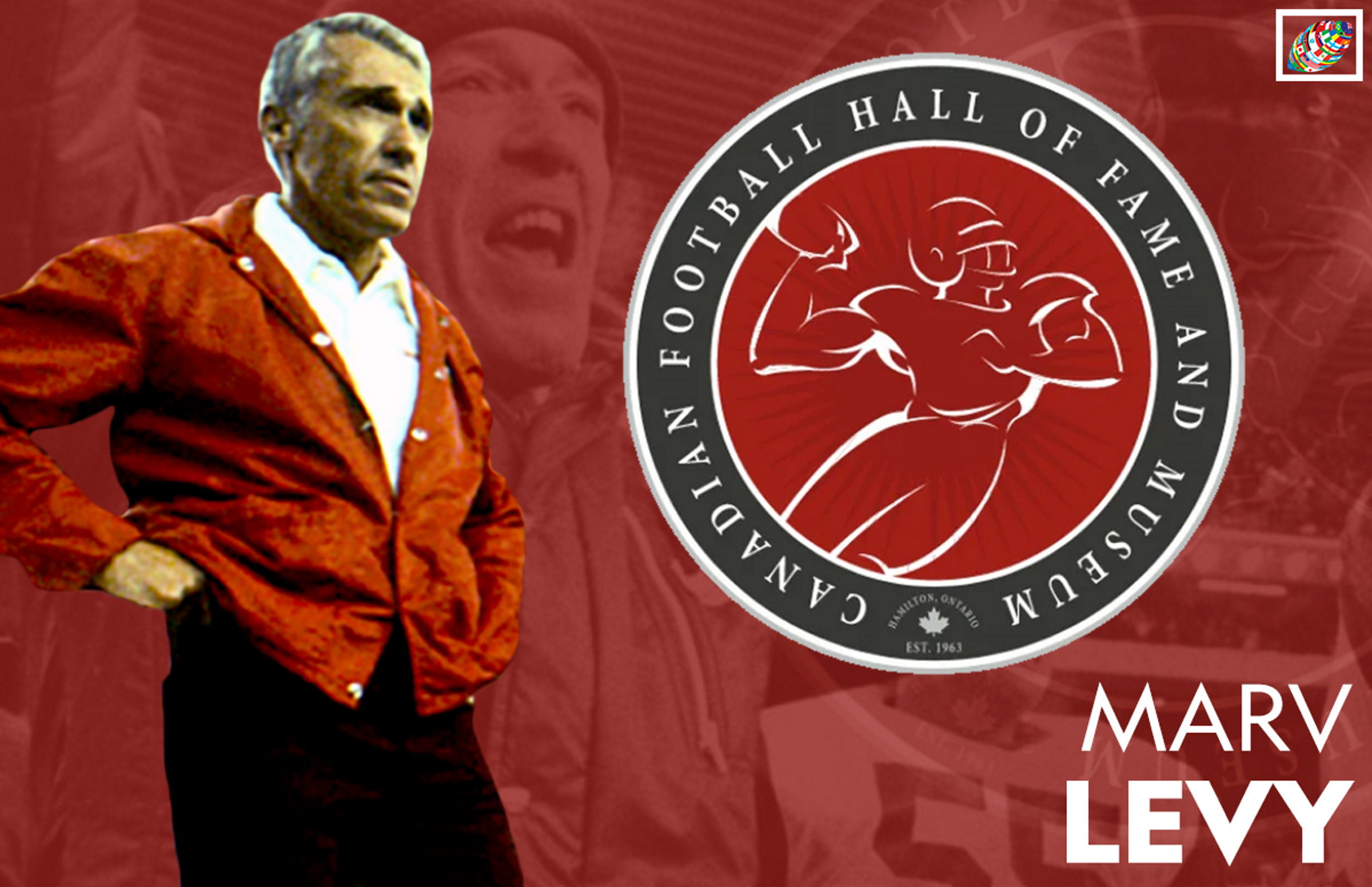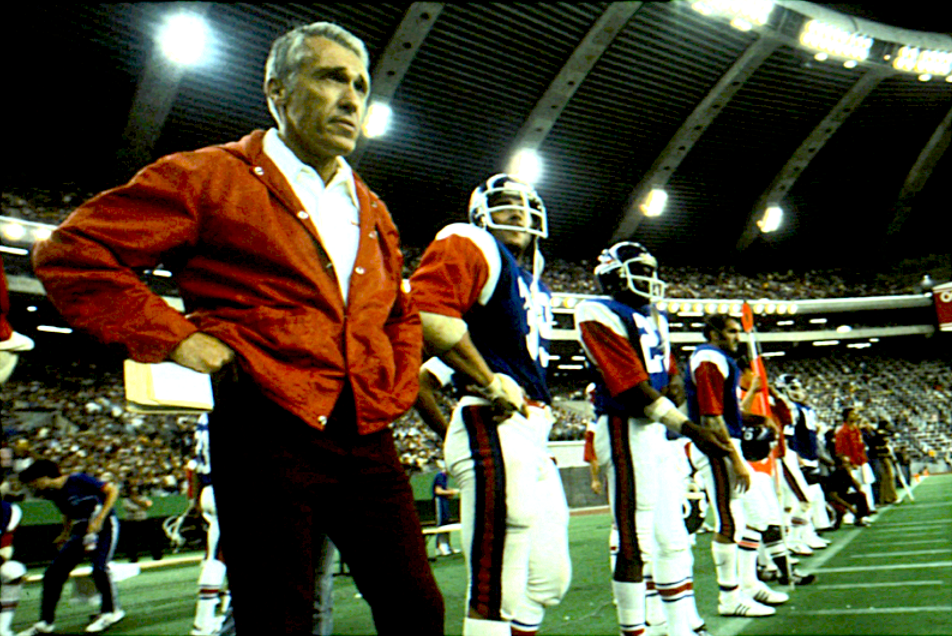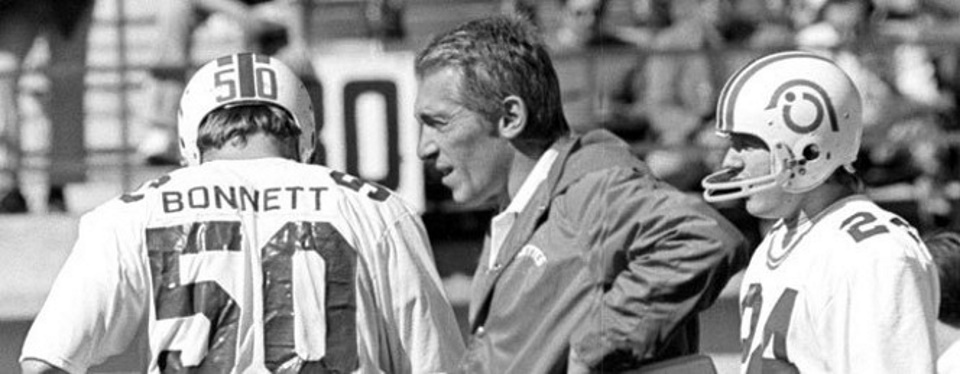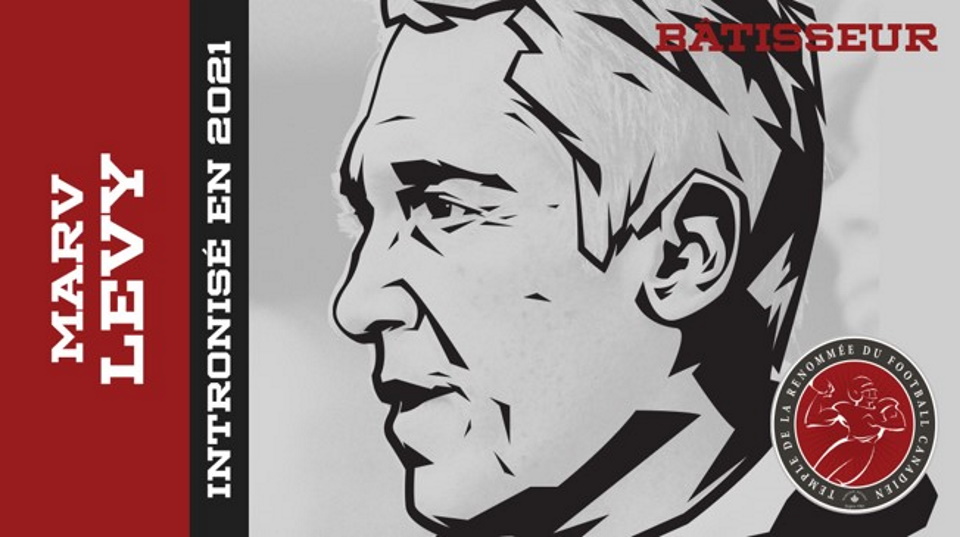Marv Levy: Long overdue inductee to Canadian Football League Hall of Fame

In the game of football there are two maxims to abide by: Never say “Never,” and it’s never too late. Both fit the life theme of Marvin Daniel Levy, who coached the Montreal Alouettes of the Canadian Football League to two Grey Cup titles in the 1970s. At 96, recognition has finally come for this soft-spoken man of letters who holds a master’s degree in English history from Harvard and known for motivating football players with quotes from Winston Churchill.
Levy was recently inducted into the Canadian Football Hall of Fame and Museum, in Hamilton, Ontario.
“It stunned me, it surprised me after all of these years,” Levy told The Canadian Press by phone from Chicago since he was not able make the flight from his home in Chicago to Hamilton, Ont., where he would have joined six fellow inductees for the ceremony on June 24th.
Named the head coach of the Alouettes in 1973, Levy guided the team to a 43-31-4 record over his five seasons, all of which resulted in playoff berths, where he captured the Grey Cup, Canadian football’s most cherished prize, in 1974 and 1977.
Levy’s induction puts him in exclusive company as just the third person to be in both the Canadian Hall of Fame and the Pro Football Hall of Fame in Canton, Ohio, joining former Minnesota Vikings (NFL) and Winnipeg Blue Bombers (CFL) head coach Bud Grant and Warren Moon, who quarterbacked the Edmonton Eskimos and Houston Oilers.
Levy’s memory remains crisp about his head coaching experience in Canada nearly five decades ago.
“I coached for 47 years,” he said. “Only five of them were with the Montreal Alouettes, but they remain so prominent in my memories. We did have a lot of success during that period, and we had a fantastic fan base in Montreal,” he recalled, adding how 68,000 fans braved sub-freezing temperatures at the 1977 Grey Cup, which came to be called “the Ice Bowl.”
A particular note in the legacy of Marv Levy is the impact he made on the CFL with a rule change, which allowed teams to block on punt returns, making one of the most boring plays of the game into one of the most spectacular. He also introduced the no-huddle offense into the CFL, which he was later to use with great success as coach of the Buffalo Bills in their Super Bowl runs.
Levy’s famed players include linebacker/punter Wally Buono, who followed Levy’s footsteps after his playing days to coach Calgary and BC, where he amassed the most head-coaching wins (282) in CFL history. Levy also coached uber-talented Heisman trophy winner Johnny Rodgers, who set rushing records with the Alouettes.
Before his term began in the CFL, Levy was an assistant coach in the NFL. He coached the special teams unit with the Washington Commanders (née Redskins), leaving after the 1972 Super Bowl defeat to the undefeated Miami Dolphins, a game forever remembered for his unit blocking a Miami field goal that would have given Miami a 17-0 lead, and had it held up it would have matched the team’s 17-0 record for the season. Learning his craft under the Commanders’ George Allen, known for devising stingy defenses, Levy devised his own stout defenses in Montreal. In each year at the helm of the Alouettes, his teams ranked in the top echelon in points allowed.
“The thing that’s most important is if you run, throw, block, tackle, catch, kick better than your opponent you’re going to win,” he once said. “Fundamentals, fundamentals, fundamentals, that’s what counts.”
But what distinguished Levy was his attitude towards the game and his players. The New Republic once described him as “a gentle soul who truly believes sportsmanship matters more than victory and who never loses sleep over defeats.” Part of Levy’s success stemmed from his natural knack to draw the team together not through bluster and tough talk, but through treating his players with respect and expecting the same in return.
So why did it take so long for Marv Levy to receive his day in the sun in the Canadian Football Hall of Fame and Museum? After all, former players of Levy and fans had been clamoring for his admission for many years.
A reply of “good question” normally suggests there isn’t a “good” answer.
The Canadian Hall represents all levels of football in Canada, both amateur and professional, in contrast to its counterpart in the United States for professionals only. The road to enshrinement in Canada can be said to be inclusive and grassroots, where the public can fill out and submit a nomination form in two categories, one for players and another for builders, nomenclature for non-player personnel.
By contrast, the nomination and voting at Canton is the exclusive privilege of persons in the media, who ostensibly—and quite disputably—have insights to make sounder judgements than common followers.
This method of selection at Canton may represent a cultural phenomenon in the United States, which snubs anything that resembles “populous” or people’s choice. Cynics among us might conclude that anything by the people and of the people takes time.
If so, the timing in Marv Levy’s long span to induction in the Canadian Football League Hall of Fame befits yet another maxim: Good things come to those who wait.
-#-


